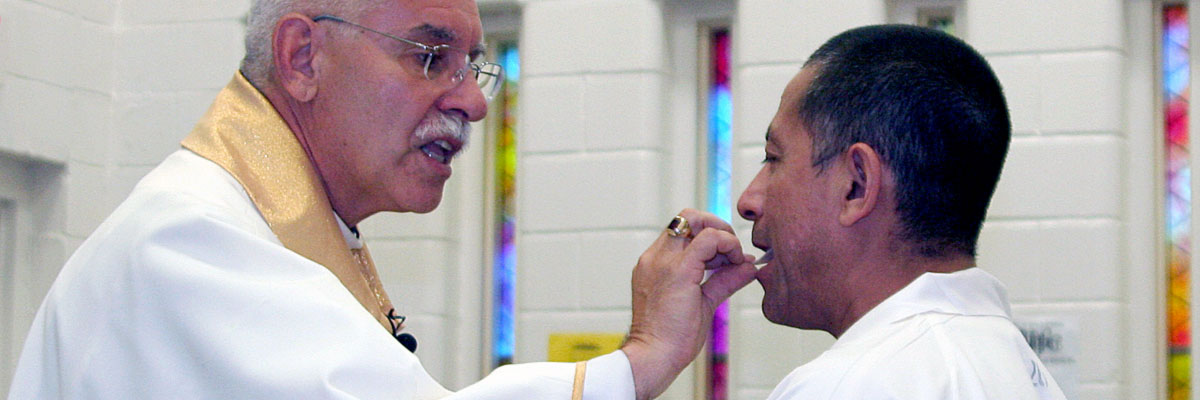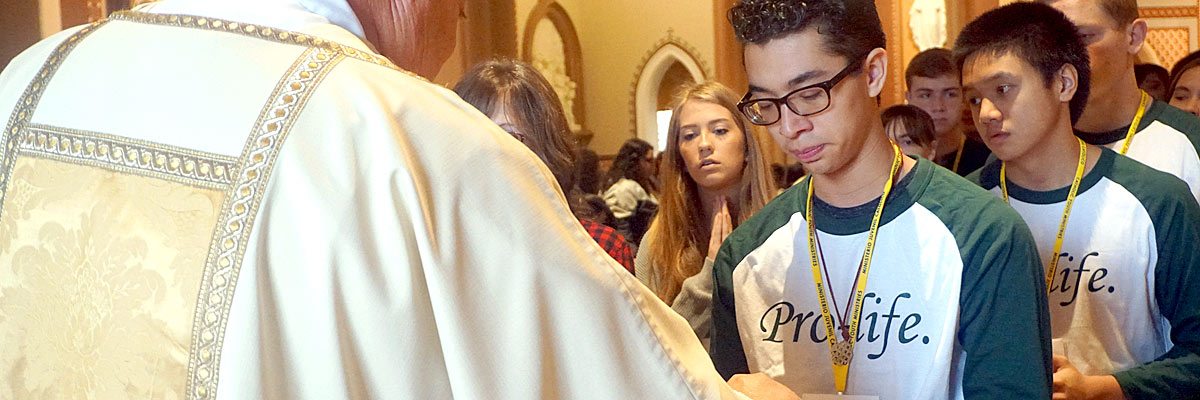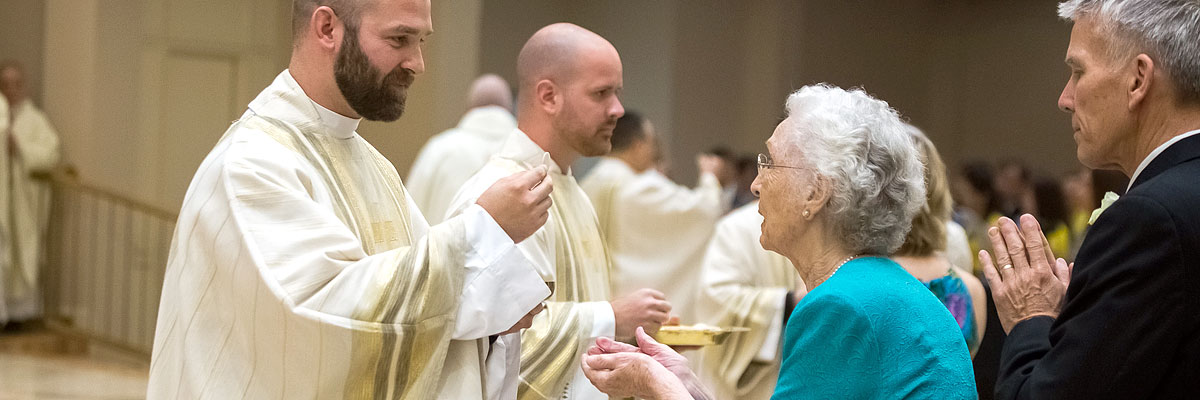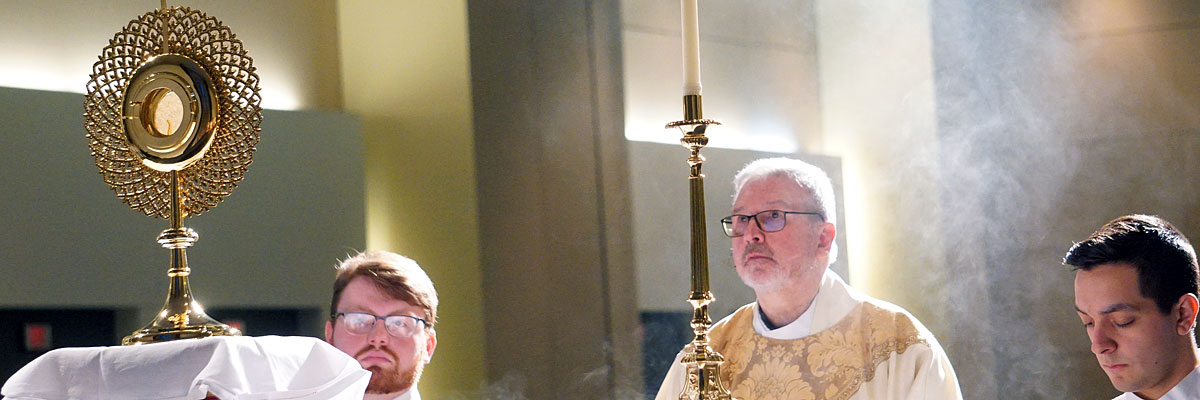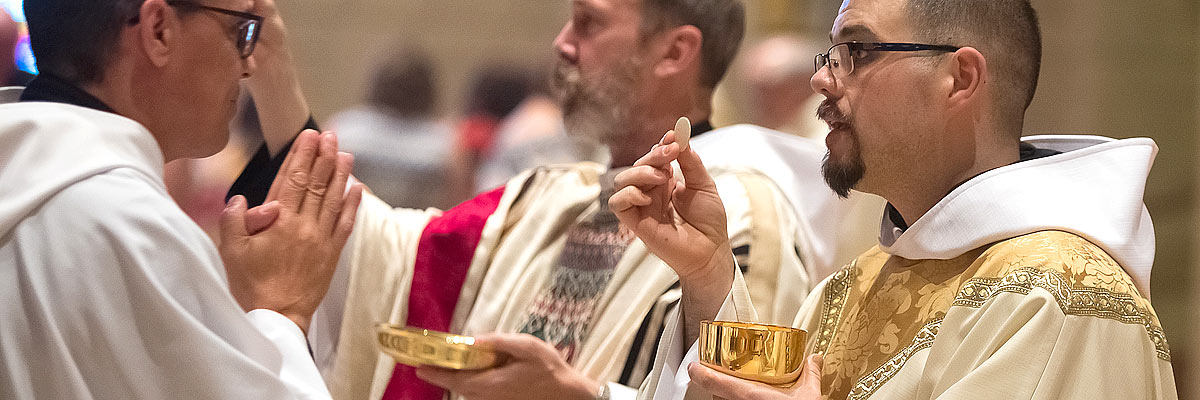Official Website of the
Catholic Diocese of Little Rock
Eucharistic Revival Days 2023
Published: June 3, 2023
Bishop Anthony B. Taylor preached the following homily at the closing Mass for the Eucharistic Revival Day at St. Raphael Church in Springdale on Saturday, June 3, 2023, and Christ the King Church in Little Rock on Saturday, June 10, 2023.

Bishop Taylor
You and I have spent the day sharing various activities designed to rekindle in our hearts a deeper love and appreciation for the Eucharist. It is the greatest gift Jesus left us following his resurrection and return to the Father the day of his ascension into heaven. It is so appropriate that our two revival days in northwest Arkansas and central Arkansas take place on the feasts of the Blessed Trinity and Corpus Christi respectively.
Corpus Christi is the feast of the Body and Blood of the Lord to whom we are united in the Eucharist. His body and blood become our body and blood that we receive into ourselves in Communion and offer to the Father in sacrifice from the altar. Corpus Christi is preceded by the feast of the Blessed Trinity, to whom we are united through Jesus to whom we have become united in the Eucharist.
Over the course of this day, we had presenters unpack the meaning of this for us. After this came eucharistic exposition and a time of eucharistic adoration, during which we sought to open our hearts to receive the blessing of experiencing the real presence of Jesus in our own lives not only in this time of adoration but also especially in this Mass during which Jesus is present in multiple ways.
This Mass will end with an apostolic blessing, also called a papal blessing and thus the plenary indulgence that comes with an apostolic blessing. When there is sufficient reason and an appropriately solemn event, bishops are allowed to impart the apostolic blessing up to three times a year. This is the first time that I will have done so ... This is a really special deal.
He is in the community gathered, in prayers for forgiveness, in the Scriptures proclaimed, in the bread and wine transubstantiated into Jesus’ real body and blood, soul and divinity, and in the reception of Jesus into ourselves in communion — materially and spiritually — through our own personal reception of the sacred elements, which puts us in communion with Jesus and through him with the Father and the Holy Spirit, and also as Church in communion with all our fellow believers.
Both vertically, united with God, which is by far the greater thing, but also horizontally, united with each other as Church.
But there are three additional things that we will be doing toward the end of this Mass: We will bless catechists, who have a special role in teaching the meaning of the Eucharist, what Vartican II reminds us is “the source and summit of our faith” to the next generation of believers. Our catechists sometimes run into strong headwinds of disbelief due to the influence of the increasingly secular, even godless, society in which their students and the students’ parents — find themselves.
Our catechists often feel like they are swimming upstream, swimming against the current — but hasn’t it often been that way in the 2,000 year history of the Church? Indeed, it is for that reason the Jesus gave us the Eucharist to strengthen us for the struggles we face in living the Gospel in the real circumstances in which we find ourselves.
And then we will also bless lay ministers of Communion to assist our priests and deacons in giving Communion to the faithful during Mass, bringing Communion to the sick and shut-ins in their homes and hospitals, exposing the Blessed Sacrament for adoration and reposing the Blessed Sacrament in the tabernacle following adoration, though only priests and deacons can give Benediction.
Many of our parishes have an increasing need for well-trained ministers of Communion now that we have resumed offering the Precious Blood in parishes throughout the diocese now that COVID-19 pandemic restrictions have been lifted.
And then finally, this Mass will end with an apostolic blessing, also called a papal blessing and thus the plenary indulgence that comes with an apostolic blessing. When there is sufficient reason and an appropriately solemn event, bishops are allowed to impart the apostolic blessing up to three times a year.
This is the first time that I will have done so, and it will be with this apostolic blessing that this Mass will conclude. This is a really special deal and it is called an apostolic blessing because as your bishop I have been specially empowered to impart this blessing, it is as if the pope himself were here with us today.
And of course I hope you know that on Sunday June 11, the feast of Corpus Christi, we will be inaugurating our new Diocesan Shrine of Divine Mercy at St. Edward Church in Little Rock. The Eucharist will be exposed for adoration Tuesday through Thursday at 5 p.m. and Friday through Sunday at 3 p.m. Confession will usually be available in English and Spanish every day during adoration except Monday.
And being a shrine, pilgrims who visit this shrine and meet certain conditions can receive a plenary or partial indulgence depending on their circumstances, freeing them fully or partially from the temporal punishment due to sin depending on their sincerity and fervor. This is sort of complicated, so at the shrine there will be an information sheet about indulgences available that should answer most of your questions.
As for the requirements, there are basically five things:
- 1.) Participating in the pious act for which indulgences are granted, which for you who are here today, this would be receiving the papal blessing at the end of today’s Mass. For others starting June 11, visiting the Shrine of Divine Mercy at St. Edward Parish in Little Rock will be a qualified pious act.
- 2.) Having a complete and whole-hearted detachment from all sin of any kind.
- 3.) Making a valid sacramental confession within 20 days of that pious act.
- 4.) Receiving Holy Communion in a state of grace within 20 days of, which most of you will do in this Mass.
- 5.) Praying for the intentions of the pope, which could be as simple as praying an Our Father and Hail Mary for the pope’s intention.


